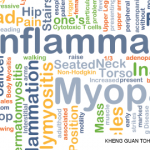Antibody Cancer Screening Tool

Dr. Steen
Dr. Shah thinks these data suggest autoantibodies could be useful tools for cancer risk stratification in scleroderma patients. Additionally, personalized cancer screening guidelines could maximize detection of cancer through enhanced testing of high-risk groups while minimizing the harms and costs from over screening. Further study is warranted.
“I think we tend to be so busy taking care of these very sick patients that we [may] forget about cancer screening altogether,” says Dr. Shah. “The first step is to remember we need to do standard age, sex and risk factor-
based cancer screening.”
The group at JHSC is working on an algorithm it hopes to test soon to accumulate the data necessary to establish firmer, more specific, cancer-screening guidance.
Significance of Increased Risk
Virginia Steen, MD, is professor of medicine at the Georgetown University School of Medicine in Washington, D.C. She thinks this is another in a series of exciting studies about cancer, scleroderma and antibodies. The significance of the increased risk in patients without these antibodies is unclear.
“This [CPT-negative] antibody group is going to be a mixture of many other antibodies, so what are we going to do with the fact that we have a group of patients with limited cutaneous disease who don’t have these three antibodies?” she asks. “How does this fit into our whole armamentarium? It will be very interesting to know if there is another antibody subset, such as with Th/To or U3 RNP.” She notes this is statistically meaningful, so physicians should be thinking about these new concerns. But it is a little early to tell if it will be practice changing.
“They have added more questions than answers at this time,” says Dr. Steen, who is also chair of the Scleroderma Foundation’s Medical and Scientific Advisory Board. “The fact that they made these connections with the antibodies is the exciting part. These data may very well help us to eventually better understand the pathogenesis of scleroderma.”
Kurt Ullman has been a contributing writer to The Rheumatologist for 10 years.
Reference
- Igusa T, Hummers LK, Visvanathan K, et al. Autoantibodies and scleroderma phenotype define subgroups at high-risk and low-risk for cancer. Ann Rheum Dis. 2018 Apr 20. pii: annrheumdis-2018-212999.


